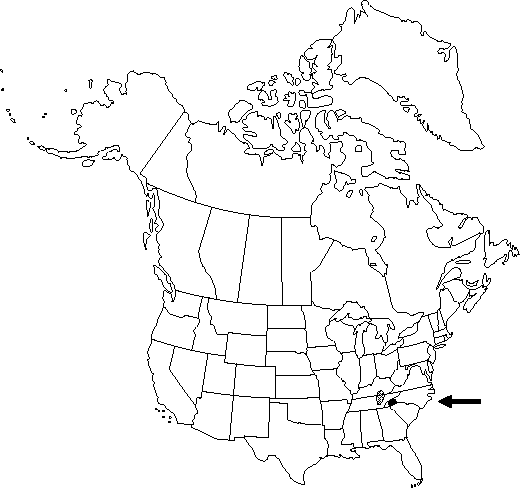Difference between revisions of "Hexastylis contracta"
Brittonia 8: 279. 1957.
FNA>Volume Importer |
FNA>Volume Importer |
||
| Line 30: | Line 30: | ||
|elevation=300-1000 m | |elevation=300-1000 m | ||
|distribution=Ky.;N.C.;Tenn. | |distribution=Ky.;N.C.;Tenn. | ||
| − | |discussion=<p>The distribution of Hexastylis contracta is unique; it is disjunct between the Cumberland Plateau of central Tennessee and Kentucky and the southeastern Blue Ridge Province of western North Carolina.</p> | + | |discussion=<p>The distribution of <i>Hexastylis contracta</i> is unique; it is disjunct between the Cumberland Plateau of central Tennessee and Kentucky and the southeastern Blue Ridge Province of western North Carolina.</p> |
|tables= | |tables= | ||
|references= | |references= | ||
| Line 54: | Line 54: | ||
|publication year=1957 | |publication year=1957 | ||
|special status=Endemic | |special status=Endemic | ||
| − | |source xml=https://jpend@bitbucket.org/aafc-mbb/fna-data-curation.git/src/ | + | |source xml=https://jpend@bitbucket.org/aafc-mbb/fna-data-curation.git/src/8f726806613d60c220dc4493de13607dd3150896/coarse_grained_fna_xml/V3/V3_619.xml |
|genus=Hexastylis | |genus=Hexastylis | ||
|species=Hexastylis contracta | |species=Hexastylis contracta | ||
Revision as of 17:18, 18 September 2019
Rhizomes: internodes short, leaves crowded at rhizome apex. Leaf blade rarely variegate, orbiculate-cordate; calyx tube rhombic-ovoid, conspicuously tapered above middle, with prominent constrictions just above base and just below sinuses, 15-27 × 12-17 mm, inner surface with reticulations absent or poorly developed, ridges 0-1 mm high, lobes erect to spreading, 4-5 × 7-8 mm, adaxially puberulent; stamen connective extending beyond pollen sacs; ovary ca. 1/3-inferior; ovules 6 per locule; styles 2-cleft halfway to stigma.
Phenology: Flowering spring (May–Jun).
Habitat: Acid soils in deciduous forests, with Kalmia and Rhododendron
Elevation: 300-1000 m
Distribution

Ky., N.C., Tenn.
Discussion
The distribution of Hexastylis contracta is unique; it is disjunct between the Cumberland Plateau of central Tennessee and Kentucky and the southeastern Blue Ridge Province of western North Carolina.
Selected References
None.